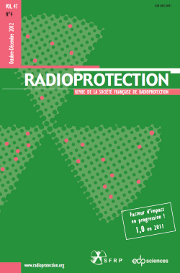Article contents
The case against protecting the environment from ionising radiation
Published online by Cambridge University Press: 17 June 2005
Abstract
The objective of this paper is to present the (rarely heard) argument in favour of retention of the present system of radiation protection of the environment. There has been a recent trend in the radioecological and radiation protection community towards greater regulation of the effects of ionising radiations on biota. In particular, the often quoted International Commission on Radiation Protection (ICRP) hypothesis that: If humans are protected from the effects of ionising radiation, then flora and fauna are also adequately protected has been criticised as being too anthropocentric and not adequate for protection of the environment. In this paper I will challenge this view, arguing firstly that this statement is almost always quoted out of its proper context, and secondly that the ICRP hypothesis does adequately protect the environment from the effects of ionising radiations. In view of the relatively insignificant effect of regulated releases of ionising radiation on the environment, the economic cost of further regulation will not result in a significant environmental benefit. Whilst empirical research to test the ICRP hypothesis should continue, until there is clear evidence against it, this simple and cost-effective approach should be retained. This would benefit the environment by directing scarce resources to more urgent environmental problems.
Information
- Type
- Research Article
- Information
- Copyright
- © EDP Sciences, 2005
- 4
- Cited by

